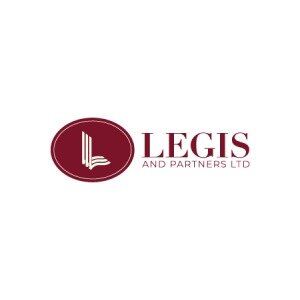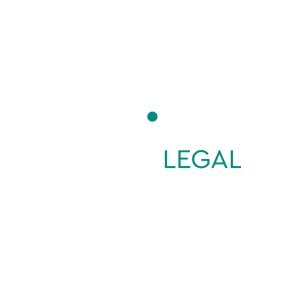Best Restructuring & Insolvency Lawyers in Mauritius
Share your needs with us, get contacted by law firms.
Free. Takes 2 min.
Or refine your search by selecting a city:
List of the best lawyers in Mauritius
About Restructuring & Insolvency Law in Mauritius
Restructuring and insolvency law in Mauritius is designed to address the financial difficulties faced by individuals, companies, and other legal entities. This area of law provides mechanisms for businesses to reorganize their affairs, restructure debts, and in some cases, liquidate assets to pay creditors. Mauritius has established a modern insolvency framework that not only protects the interests of creditors but also offers opportunities for businesses to survive challenging economic conditions. The legal framework encourages early intervention and efficient resolution of financial distress, balancing the interests of all stakeholders.
Why You May Need a Lawyer
Legal help is crucial in restructuring and insolvency matters due to the complex processes and significant legal implications involved. Common situations where you may require a lawyer include:
- When your company is facing cash flow issues and cannot meet its financial obligations - If creditors are initiating recovery actions against your assets or business - When you are considering voluntary administration, receivership, or liquidation - If you are a creditor seeking to recover debts from an insolvent company or individual - When you need guidance on restructuring debt arrangements or negotiating with creditors - If you are involved in disputes about priority of claims or distribution of assets - When directors are concerned about their responsibilities and potential liabilities during insolvency
A lawyer specializing in restructuring and insolvency will not only guide you through statutory requirements, but also negotiate with various stakeholders and safeguard your rights throughout the process.
Local Laws Overview
The main legislation governing restructuring and insolvency in Mauritius is the Insolvency Act 2009. This Act outlines the procedures for insolvency, bankruptcy, winding up, receivership, and administration. Some important aspects include:
- Corporate Insolvency: Companies facing financial distress may undergo voluntary administration, receivership, or liquidation. The Act specifies how each process is initiated, run, and concluded. - Personal Insolvency: Individuals who cannot pay their debts may file for bankruptcy, with provisions for asset realization, debt settlement, and discharge. - Scheme of Arrangement: Companies can propose a scheme to restructure their debts, which requires approval from creditors and the court. - Creditors' Rights: Creditors may petition to wind up a company or claim for recovery through the insolvency process. - Role of Insolvency Practitioners: Licensed insolvency practitioners or liquidators oversee the administration and distribution of assets. - Director’s Responsibilities: Company directors must act in the best interests of creditors when the company is insolvent.
Regulators like the Financial Services Commission and courts play significant roles in supervising restructurings and insolvencies to ensure compliance with the law.
Frequently Asked Questions
What is the difference between restructuring and insolvency?
Restructuring involves reorganizing a company's finances and operations to address financial difficulties, often with the aim of avoiding insolvency. Insolvency means being unable to pay debts as they become due, potentially leading to legal proceedings for asset liquidation or bankruptcy.
Who can start insolvency proceedings in Mauritius?
Insolvency proceedings can be initiated by the debtor (company or individual), creditors, or, in certain instances, regulators or government authorities.
What happens to employees during insolvency?
Employees may face retrenchment or redundancy if a company is wound up. However, Mauritian law generally gives employees’ wage claims a high priority in the distribution of assets.
How are assets distributed in insolvency?
Assets are distributed following a statutory order of priority: secured creditors are paid first, followed by preferred creditors (often including employee wages), unsecured creditors, and shareholders.
Is it possible for a business to survive insolvency in Mauritius?
Yes, through restructuring or schemes of arrangement, businesses may continue operating by reorganizing debts and agreeing new terms with creditors, subject to court and creditor approval.
Can creditors be forced to accept a restructuring plan?
A restructuring plan (scheme of arrangement) must be approved by a requisite majority of creditors and sanctioned by the court. If approved, dissenting creditors may be bound by the plan.
What are the risks for directors during insolvency?
Directors may be personally liable if found to have engaged in wrongful trading, fraudulent activity, or failed to act in the best interests of creditors once the company is insolvent.
How long does the insolvency process take?
The time frame depends on the complexity of the case, the assets involved, and the cooperation of parties. Certain processes like voluntary administration are designed to be quicker, while liquidation can take several months or longer.
Can foreigners or offshore companies use Mauritian insolvency laws?
Yes, Mauritius permits insolvency proceedings for local companies, global business companies, and, in some cases, foreign entities with assets or operations within Mauritius.
How do I appoint an insolvency practitioner?
An insolvency practitioner or liquidator must be licensed under the Insolvency Act 2009. Appointments are typically made by creditors, the court, or administrators, depending on the process.
Additional Resources
If you are dealing with restructuring or insolvency issues in Mauritius, the following resources may be helpful:
- Registrar of Companies: Handles company registrations and maintains official insolvency records. - Office of the Director of Insolvency: Provides oversight of insolvency processes and practitioners. - Financial Services Commission: Regulates financial and non-banking entities and may assist with cross-border matters. - The Judiciary of Mauritius: Courts have jurisdiction over insolvency cases and can grant orders or approval as needed. - Licensed Insolvency Practitioners: Professional advisors authorized to act as administrators, liquidators, or receivers. - Business Mauritius and industry groups: Offer guidance and support for distressed businesses.
Next Steps
If you require legal guidance in restructuring or insolvency, it is best to take the following steps:
1. Gather all relevant financial documents and records related to your business or personal finances. 2. Contact a lawyer or licensed insolvency practitioner experienced in Mauritian law to assess your situation. 3. Discuss your options in detail, including restructuring, administration, or liquidation. 4. Work with your legal advisor to communicate with creditors and stakeholders early to explore possible solutions. 5. Follow all statutory procedures and filing requirements to ensure your interests are protected. 6. Keep records of all meetings, negotiations, and agreements throughout the process. 7. Stay informed by referring to updates from relevant government bodies and professional organizations.
Taking expert legal advice at an early stage can often preserve more value, protect your rights, and provide the best outcome before a crisis escalates.
Lawzana helps you find the best lawyers and law firms in Mauritius through a curated and pre-screened list of qualified legal professionals. Our platform offers rankings and detailed profiles of attorneys and law firms, allowing you to compare based on practice areas, including Restructuring & Insolvency, experience, and client feedback.
Each profile includes a description of the firm's areas of practice, client reviews, team members and partners, year of establishment, spoken languages, office locations, contact information, social media presence, and any published articles or resources. Most firms on our platform speak English and are experienced in both local and international legal matters.
Get a quote from top-rated law firms in Mauritius — quickly, securely, and without unnecessary hassle.
Disclaimer:
The information provided on this page is for general informational purposes only and does not constitute legal advice. While we strive to ensure the accuracy and relevance of the content, legal information may change over time, and interpretations of the law can vary. You should always consult with a qualified legal professional for advice specific to your situation.
We disclaim all liability for actions taken or not taken based on the content of this page. If you believe any information is incorrect or outdated, please contact us, and we will review and update it where appropriate.
Browse restructuring & insolvency law firms by city in Mauritius
Refine your search by selecting a city.

















